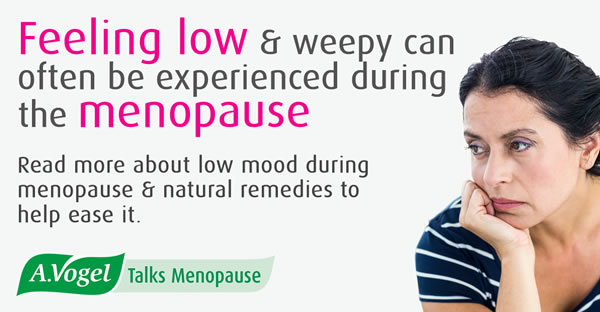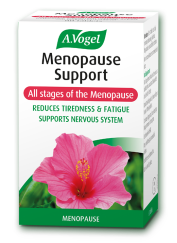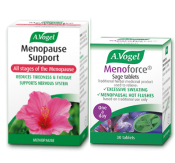An introduction to low mood and the menopause
The menopause can bring on a range of emotional symptoms, including low mood and feelings of sadness, as well as mood swings and anxiety.

Many women find as they go through menopause that their mood can dramatically change and, instead of feeling positive and happy, they can suddenly find themselves feeling low and disheartened. This feeling can cause you to have little interest in activities and people, feel lacking in energy and it can also disrupt your sleep.
The link between hormones and mood can often be missed, especially during peri-menopause, when hormones are continually fluctuating.
Why does menopause cause low mood?
The main reason for low mood during menopause is falling oestrogen levels. Oestrogen is known to have a beneficial effect on mood and acts as a mild antidepressant, making us feel happier. During the menopause, as oestrogen starts to drop or fluctuate, it can play havoc with your emotions and cause you to feel emotionally vulnerable and weepy.
Other symptoms of menopause can also impact your mood, including stress, fatigue and sleep problems. These symptoms not only affect your energy levels, they can also leave you feeling emotionally drained.
What home remedies are there for low mood?
If you are feeling low, there are many things you can do yourself to help lift your mood, these self-help measures include:
Taking time to relax. Research has shown that daily relaxation/meditation can reduce symptoms very quickly. Me-time is so important in the menopause. Make 30 minutes a day relaxation a priority; and for all those of you who say ‘I don’t have the time’, you are the ones who need it the most!
Exercising, even if you don’t feel like it. Exercise makes you produce more natural anti-depressants in your own body, so, although it's usually the last thing you feel like doing when you're low mood strikes, a 10-20 minute walk or quick jog around the block or even 5 minutes with a skipping rope will make you feel a lot better. If you get used to doing a small amount of exercise most days - just 10-20 minutes - then you will be better protected against low mood.
Taking a supplement. A good female multivitamin and mineral supplement which contains plenty of B vitamins and magnesium can often help to boost your mood. Magnesium is known to help with mood, relaxation and sleep, whilst the B group vitamins are good for brain function, mental sharpness and mood.
Head over to my blog 'Why you need magnesium during menopause' to find out more about this vital mineral and how it can help you during the menopause.
Talking or writing about it. It’s important not to bottle up your feelings. Talk to friends or family about how you feel. However, if you find this difficult, even writing your problems down in a journal can help release your feelings.
Avoiding or limiting your alcohol intake. Alcohol is a depressant and disrupts sleep, so although it may help for a few hours, its depressant effect will make you feel worse in the long run, particularly if you consume it regularly. If you can’t avoid alcohol completely, try to reduce the amount you consume.
Changing things up. The brain can easily form repetitive patterns making it hard to change your emotions, so try doing something new when you feel low and you might surprise yourself. Changing your surroundings, trying a new hobby, even a new hairstyle can all have a positive impact on your mood.
Are there herbal remedies to help me?
There are several herbal remedies which can help to encourage a happier and more positive mood during menopause.
Firstly, you could consider taking oestrogen-balancing supplements such as soya isoflavones. These can help to gently raise oestrogen, which in turn can reduce symptoms, making you feel more emotionally in control without any of the side effects associated with a strong oestrogen medication like HRT. Check out our Menopause Support supplement for more information on how soya isoflavones can help during menopause.
Secondly, if you are not on any other medication, you could consider taking the herb Hypericum, which is also known as St. John’s Wort. This natural remedy can help to relieve slight low mood and mild anxiety.
You may also find flower essences such as Mood Essence or Emotional Essence helpful. These can help to rebalance emotions and can be taken together with any other medication or supplement.
What about conventional remedies?
If self-help measures and herbal remedies do not help lift your mood then your doctor may prescribe an anti-depressant to help to help ease your symptoms. However, anti-depressants are usually the last resort for low mood due to their association with side effects. If your doctor prescribes you anti-depressants, they will discuss the types that are available and which one would suit you best.









